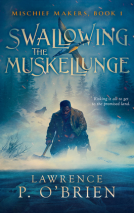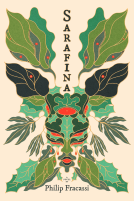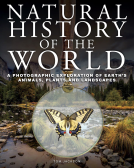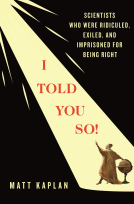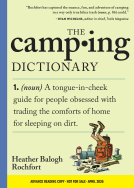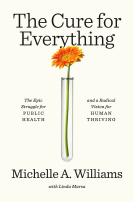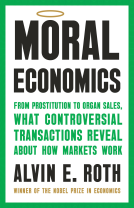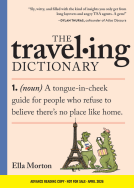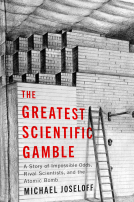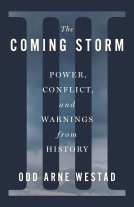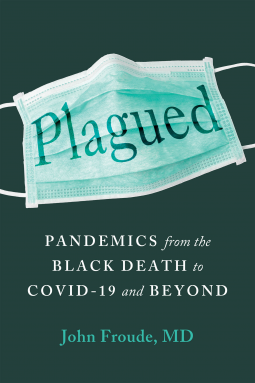
Plagued
Pandemics from the Black Death to Covid-19 and Beyond
by John Froude; John Froude
This title was previously available on NetGalley and is now archived.
Send NetGalley books directly to your Kindle or Kindle app
1
To read on a Kindle or Kindle app, please add kindle@netgalley.com as an approved email address to receive files in your Amazon account. Click here for step-by-step instructions.
2
Also find your Kindle email address within your Amazon account, and enter it here.
Pub Date May 18 2021 | Archive Date Feb 07 2022
Talking about this book? Use #Plagued #NetGalley. More hashtag tips!
Description
Science and history can give us insight into two urgent questions: Why do they persist? And how can we survive them?
Pandemics have been with us since Homo sapiens appeared on earth nearly 300,000 years ago. Forty percent of our genes are made of DNA from viruses. Yet we still remain vulnerable. Today, we are engulfed by a new pandemic: SARS-CoV-2 or the coronavirus that originated in China and, within four months, had spread to every country in the world.
Thanks to advances in molecular biology and new tools with which to probe them, we are also in the midst of a golden age of understanding when it comes to our tiniest enemies. DNA technology is rewriting history, resolving disputes that have persisted for decades—and giving us crucial insights that may safeguard our future.
Infectious Disease Specialist Dr. John Froude has worked on four continents over nearly 50 years, treating sufferers of plagues that arose over a century ago and never left us (like malaria and cholera) and battling new threats (like AIDS and Covid-19) as they emerge. In Plagued, he offers a gripping and timely account of the pandemics that have driven our evolution and shaped our history.
Plagued tells the stories of yellow fever, smallpox, syphilis, the bubonic plague, influenza, typhus, cholera, malaria, tuberculosis, AIDS, and Covid-19. Blending science and narrative, Froude explores not only the unstoppable march of pestilence and its effects, but our intimate relationship with bacteria and viruses. He also explores the complex wonder that is human immunity, which itself is the consequence of an arms race between microbes and our animal ancestors that started 3.5 billion years ago. Along the way, we meet the dogged geniuses who have brought us back from the brink and see what it might take to do it again.
Plagues arise without warning. But as we watch the current cataclysm unfold in real time, we have a unique opportunity to forge a path ahead that avoids both denial and panic. This timely book illustrates how lessons from the past, both distant and recent, may be the key to understanding why pandemics continue to plague us, and what can be done to stop them.
A Note From the Publisher
This title is available in PDF only. We will add epub and mobi files when available.
Available Editions
| EDITION | Other Format |
| ISBN | 9781950665754 |
| PRICE | $26.95 (USD) |
| PAGES | 300 |
Links
Average rating from 22 members
Featured Reviews
Brilliant look at pandemics from an insider
I loved this book. Dr. Froude writes with a conversational tone while explaining scientific ideas very plainly. He also adds in the occasional priceless gems that I would read multiple times, they were so good. As Dr. Froude is an infectious disease specialist, he brings his own experiences to the story, creating an interesting bond between author and reader. The chapter “Dispatches from Pandemicville: COVID-19” and Froude’s experiences is particularly evocative. I generally skim over the Acknowledgements section of books, but this one I read carefully. The paragraph on nurses is particularly important. Overall, this is a brilliant book that is well worth the read. Thank you to Netgalley and BenBella Books for the advance reader copy.
 Melinda H, Librarian
Melinda H, Librarian
A good introduction to some of the pandemics that have struck humans, including the SARS CoV 2 pandemic. The author also shares some of his experiences working in a New York hospital during 2020. Thanks to NetGalley and the publisher for an advance copy.
 James S, Educator
James S, Educator
Clearly well researched and considered as well as broad ranging. Couldn't be much more timely. This book does a nice job of explaining how pandemics arise and why as well as looking at some of their historical impact. All this and in highly readable form. An excellent read to put our current travails with COVID-19 in perspective and address some of the misconceptions surrounding it.
A little too niched for putting the entire book into my general curriculum, but I will undoubtedly use some of what I learned and might use some sections. I also have students who do independent projects on this topic and would definitely recommend the book for them.
This book it's about the different pandemics that have occurred in the world over the years, taking a historical, social, and biological approach. Each chapter refers to a disease and, in turn, this is divided into three parts; history, impact, and the causal microorganism: its physiology and in some instances mechanism of action.
First of all, I really liked the beginning, as soon as it started it caught my attention and kept it throughout the book. I am pleased that, although it presented a historical approach to each pandemic, it wasn't the main point, with this, the structure of each chapter made the reading fluid and not boring. I should mention that personally, I don't feel that it's necessary to have a high level of prior knowledge, since, the "complicated" would be the biological/biochemical explanation of the microorganism and I feel that it's explained very clear, but I leave that to the consideration of each person.
It explains the bases of immunology to understand what happens in the body when attacked by microorganisms i.e. Virus and bacteria. Also, it not only focuses on the physiological point of view but how it affects society socially and economically, considering the religious points of view of some people.
I liked that mentions the reality that different races and ethnic groups have suffered from the pandemic, making special mention of the colonization that America suffered and how the colonizers brought different diseases, as well as the racial discrimination that hundreds of Asians have suffered in America for decades due to various pandemics, dating from the Black Death to the present day with Covid-19. It's necessary to talk about how racism, ignorance, poverty, and political greed influence and affect the control of pandemics on a global level.
In the same way, the importance of the use of sterile and new instruments in treatments is discussed, especially the correct development of laboratory techniques. It was interesting to read how humanity was advancing technologically and, with this, acquiring knowledge of a great variety of microorganisms. The experiments carried out, although questionable, are those that helped to understand and study microbes in their day.
Personally, my favorite chapters were those focused on viruses and bacteria, it had a lot of interesting information which I was unaware of, so it was very pleasant to learn something new. I loved the mention of how misinformation greatly affects the course of pandemics, I think this has become very in this age. With this, the author makes mention of the different types of coronavirus and explains in a general way how vaccines work, for people who don't trust them, what is rescued from these chapters is: currently there is a great variety of databases; genes, proteins, research, etc. That helps scientific knowledge to advance even more and, with the help of biotechnological technologies, this task becomes easier and more efficient, in conclusion, get vaccinated.
"Literate educated societies behaved in the 21st century as illiterate uneducated societies did in the 17th. Man, the impossible primate, must understand that compulsions to denial, tribalism, xenophobia, conspiracy theories, and scapegoating in a plague will only increase the number who die."
To finish, I honestly entered without great expectations but it definitely surprised me, I loved it, the book is incredible, it's quite complete, educational, and entertaining, I definitely recommend it.
My thanks to the author John Froude, BenBella Books, and NetGalley for the opportunity to get this ARC for an unbiased review
 Susana R, Reviewer
Susana R, Reviewer
Thanks to NetGalley, BenBella Books & John Froude, MD for an ARC of this book.
This book is brilliant! I loved it so much, that I’m going to be buying it in paperback, when it is released!
Written in a way that makes it accessible to the general public, Dr. John Froude does an amazing job at describing the biggest pandemics throughout history!
From their suspected origins and the mechanism through which the microorganism acts, to their impact on society and even in genetics!
Quoting the author “This book describes eleven infectious plagues that have scourged mankind and the one through which we are living, COVID-19”.
Along the information, the author gives are tidbits of curious facts that make for an entertaining read, like the origin of Malaria’s name “Bad air circulating from the Pontine Marshes in Italy gave the disease its name, mal’aria-bad air.”
Concerning the Black Death the author had this to say, that I believe it still applies today: “The death of one person is a tragedy. The saying goes on to say, the death of a million is a statistic. It isn’t. It is a million tragedies. We can neither quantify nor encompass the human suffering that is the greater part of each plague. Emperors fell, empires collapsed, armies disintegrated, famine and more war followed. The history of mankind was changed forever because of a bacteria secreted a sticky protein that blocked up the esophagus of a flea.”
And did you know that the placenta could not have evolved without retrovirus? And that our DNA is 50% virus?
It is also both reassuring and depressing that, despite the success of vaccines, there has always been some opposition to their use.
All of this is approached and explained in a way easily accessible to the general audience, making for a fun and informative read!
Will definitely be recommending this to everyone!
“We enter the rain forest where the pathogens live, we live in large cities where we incubate them, and we fly around the world disseminating them.”
“When a plague begins, look for the animals and remember your own animal nature.”
 T N, Reviewer
T N, Reviewer
This is a very good book describing about the 12 pathogen types that have devastated mankind in the past and present. The author brought us back in time when and where each of these pathogens were discovered, and how it goes on to infect so many people in the world. The author who is a medical doctor also describes his experiences in treating patients infected with some of these pathogens; particularly the SARS-CoV-2. I like the last part where the biology of how
Plague has defined humanity. It win wars. It killed local population. It pushed humans towards periphery. From plague and cholera to new viruses, it has pushed limits of human endurance. Plagues have also taught us how to fight back and reclaim our place in biosphere. A renowned scientist takes us through all the plagues that we have seen and what we can learn from them. A wonderful science book.
 Jenna W, Reviewer
Jenna W, Reviewer
I was intrigued and captivated by this book. As a microbiologist with a long time passion for Epidemiology, I love reading books like these. The author does a wonderful job talking about the plagues that have overcome us and how humanity as adapted and learned from these diseases. It is very informational and keeps the readers attention. It is a great read for both scientists and non scientists alike.
 Ana M, Reviewer
Ana M, Reviewer
I received a free e-ARC from the publisher via NetGalley in exchange for an honest review.
Plagued, by John Froude, is the exact kind of popular science book that I like. I've always found infectious diseases kind of fascinating, and in another life, I would have been a medical researcher. Alas, the best laid plans and all that.
Plagued is a book about pathogens. It is about the science behind them, the effects they have had on human history, and about human's responses to them, including how to treat and prevent them. Twelve of the chapters focus on a specific pathogen: cholera, syphilis, tuberculosis, malaria, typhus, bubonic plague, smallpox, yellow fever, HIV, Spanish flu, zika/ebola, and COVID-19.
I found the writing easy to read, and the exploration of different pathogens absolutely fascinating. I also appreciated how there was a chapter about COVID, although I think that it would be appropriate to include an update in future versions of the book in a few years time.
On the whole, a great read. I look forward to purchasing a copy for myself when it is published.
This is a very interesting book. Some of the viruses are gross.
I received an ARC from the publisher for an honest review.
Readers who liked this book also liked:
Alvin E. Roth
Business, Leadership, Finance, Health, Mind & Body, Politics & Current Affairs

